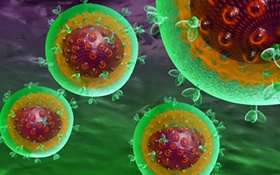AcceGen works best with Javascript, please enable Javascript for the full site experience
Animal Tumor Cell Lines Compared with normal cells, tumor cells have abnormal metabolism and proliferation. To better understand the differences between cancer cells and normal cells in various aspects, using animal cancer cells as a cancer model is an important subject for humans to overcome cancer. AcceGen animal cancer cell lines cover dozens of different animal species including mouse, rat, bovine, canine, etc. We have hundreds of animal carcinoma cell lines and normal tissue cell lines from different organs and tissues. For mouse tumor cells, we have more than 300 types in stock to provide you with a comprehensive selection.
Search under Animal Tumor Cell Lines
Cell Line Types
ALL Bat Lung Cell Lines Bovine Aortic Endothelium Cell Lines Bovine Corneal Cell Lines Bovine Endothelial Cell Lines Bovine Kidney Cancer Cell Lines Bovine Kidney Cell Lines Bovine Lung Cell Lines Butterfly Papilio Xuthus Cell Lines Cabbage Armyworm Cell Lines Canine Kidney Cell Lines Canine Macrophage Cell Lines Canine Sarcoma Cell Lines Canine Thigh Tumor Cell Lines Canine Thymocyte Cell Lines Cat Kidney Cell Lines Cat Nerve Cell Lines Cat Sarcoma Cell Lines Chicken Finite Cell Lines Chicken Liver Cell Lines Chicken Lymphocytes Cell Lines Cricetulus Griseus Kidney Cell Lines Cricetulus Griseus Lung Cell Lines Cricetulus Griseus Melanoma Cell Lines Cricetulus Griseus Ovarian Cell Lines Cricetulus Griseus Peritoneal Cells Equns Caballus Skin Cell Lines Frog Kidney Cell Lines Goat Esophageal Cell Lines Gold Fish Red Pigment Cells Guinea Pig Fibroblas Lymphocytes Cell Lines Indian Muntjak Skin Cell Lines Mink Lung Cell Lines Monkey Kidney Cell Lines Monkey Lymphocytes Cell Lines Monkey Lymphoma Cell Lines Monkey Skin Cell Lines Mosquito Mosquito Larva Cells Mouse Adipose Cell Lines Mouse Bladder Cancer Cell Lines Mouse Bone Cancer Cell Lines Mouse Bone Cell Line Mouse Bone Marrow Cell Lines Mouse Brain Cancer Cell Lines Mouse Breast Cancer Cell Lines Mouse Colon Cancer Cell Lines Mouse Colon Cell Lines Mouse Embryo Cell Lines Mouse Embryonic Stem Cell Mouse Endothelial Cell Lines Mouse Fibroblasts Lymphocytes Cell Lines Mouse Fibroblasts Cell Lines Mouse Germ Cell Cancer Cell Lines Mouse Hybrid Cell Lines Mouse Hybridoma Cell Lines Mouse Kidney Cell Lines Mouse Leukemia Cell Lines Mouse Liver Cancer Cell Lines Mouse Liver Cell Lines Mouse Lung Cancer Cell Lines Mouse Lung Cell Lines Mouse Lymphocytes Cell Lines Mouse Lymphoma Cell Lines Mouse Melanoma Cell Lines Mouse Mesenchymal Stem Cells Mouse Mouseculus Fibroblas Lymphocytes Cell Lines Mouse Muscle Cell Lines Mouse Myeloma Cell Lines Mouse Nerve Tumors Cell Lines Mouse Ovarian Cancer Cell Lines Mouse Ovarian Cell Lines Mouse Pancreas Cancer Cell Lines Mouse Pancreas Cell Lines Mouse Prostate Cancer Cell Lines Mouse Sarcoma Cell Lines Mouse Skin Cancer Cell Lines Mouse Skin Cell Lines Mouse Stromal Cell Lines Mouse Teratocarcinoma Cell Lines Mouse Thymocyte Cell Lines Mouse Thymoma Cell Lines Mouse Transformed Cell Lines Opossum Kidney Cell Lines Potorous Tridactylis Kidney Cell Lines Potorous Tridactylus Kidney Cell Lines Rabbit Corneal Cell Lines Rabbit Kidney Cell Lines Rabbit Lung Cell Lines Rabbit Skin Cell Lines Rat Bladder Cancer Cell Lines Rat Bone Cancer Cell Lines Rat Brain Cancer Cell Lines Rat Breast Cancer Cell Lines Rat Cancer Cell Lines Rat Cardiomyocyte Cell Lines Rat Colon Cancer Cell Lines Rat Colon Cell Lines Rat Embryo Cell Lines Rat Epithelial Cell Lines Rat Fibroblas Lymphocytes Cell Lines Rat Germ Cell Cancer Cell Lines Rat Hybridoma Cell Lines Rat Kidney Cancer Cell Lines Rat Kidney Cell Lines Rat Leukemia Cell Lines Rat Liver Cancer Cell Lines Rat Liver Cell Lines Rat Lung Cancer Cell Lines Rat Lung Cell Lines Rat Lymphocytes Cell Lines Rat Lymphoma Cell Lines Rat Muscle Cell Lines Rat Myeloma Cell Lines Rat Nerve Cell Lines Rat Nerve Tumors Cell Lines Rat Ovarian Cell Lines Rat Pancreas Cancer Cell Lines Rat Prostate Cancer Cell Lines Rat Sarcoma Cell Lines Rat Skin Cell Lines Rat Spontaneously Immortalized Cell Lines Rat Thyroid Cancer Cell Lines Rat Thyroid Cell Lines Rat Transformed Cell Lines Silkworm Ovarian Cell Lines Susscrofa Domestica Kidney Cell Lines Swine Kidney Cell Lines Swine Lung Cell Lines
Cat.# Name Description Price ABC-TC0920
R2C
Rat testis Leydig cell tumour. A rat testis Leydig cell tumour cell line derived from a 2-month-old ...more +inquiry ABC-TC0917
Ptk-2
Potoroo kidney. Derived from the kidney of a normal adult male Potoroo, Potorous tridactylis. This c...more +inquiry ABC-TC0916
PTK-1
The cells are positive for keratin by immunoperoxidase staining.The species was confirmed by Real-Ti...more +inquiry ABC-TC0913
PK-15
The cells are positive for pocine circovirus(PCV) antigens; The cells are positive for keratin by im...more +inquiry ABC-TC0910
PECA
PECA cells form primary metastatic lesions in lung. ...more +inquiry ABC-TC0909
PDV
The PDV cell line was derived in normal serum medium after the chemical carcinogen treatment of prim...more +inquiry ABC-TC0908
PCC-4 azal
Several cell lines (either of embryonal carcinoma or of differentiated cells derived from teratomas)...more +inquiry ABC-TC0902
PC-12
The PC-12 cell line was derived from a transplantable rat pheochromocytoma.
The cells respond revers...more +inquiry ABC-TC0896
P3X63Ag8.653
The cells are resistant to 8-azaguanine and are HAT sensitive. They can be used as fusion partners f...more +inquiry ABC-TC0895
P388-D1
A subclone of this line [P388 D1(IL-1)] produces high levels of interleukin-1 (IL-1).The species was...more +inquiry ABC-TC0891
P3/NSI/1-Ag4-1; NS-1
This is a non-secreting clone of P3X63Ag8; Kappa chains are synthesized but not secreted; The cells ...more +inquiry ABC-TC0890
P19
Mouse teratocarcinoma. The P19 cell line was derived from an embryonal carcinoma induced in a C3H/He...more +inquiry ABC-TC0876
OS1
In vitro etablished from the osteosarcoma of the Cörli rat. ...more +inquiry ABC-TC0874
OKT 4
Tumorigenecity: Isoenzyme: Histopathology: Subculture: Split ratio: Media change: Reverse transcrita...more +inquiry ABC-TC0873
OKT 11
Tumorigenecity: Isoenzyme: Histopathology: Subculture: Split ratio: Media change: Reverse transcrita...more +inquiry ABC-TC0872
OKM 1
Immunized with human peripheral blood mononuclear cells. This material is cited in a U.S. And/or oth...more +inquiry ABC-TC0870
OK
Organism: Didelphis marsupialis virginiana, opossum; Cell Type: epithelial; Tissue: kidney, cortex/p...more +inquiry ABC-TC0867
OCD
In vitro established from the primary osteochondroma of NMRI- mice. ...more +inquiry ABC-TC0859
NS20Y-TG
Mouse neuroblastoma. A 2-Amino-6-purinethiol-resistant mutant of NS20Y The cell line NS20Y is a chol...more +inquiry ABC-TC0994
RR-CHOKI
Hamster Chinese ovary. Derived from the parent line CHO-KI, resistant to ionising radiation and UV i...more +inquiry
First Prev 9 10 11 12 13 14 15 16 17 Next Last 23 Total Page 442 Total Record






